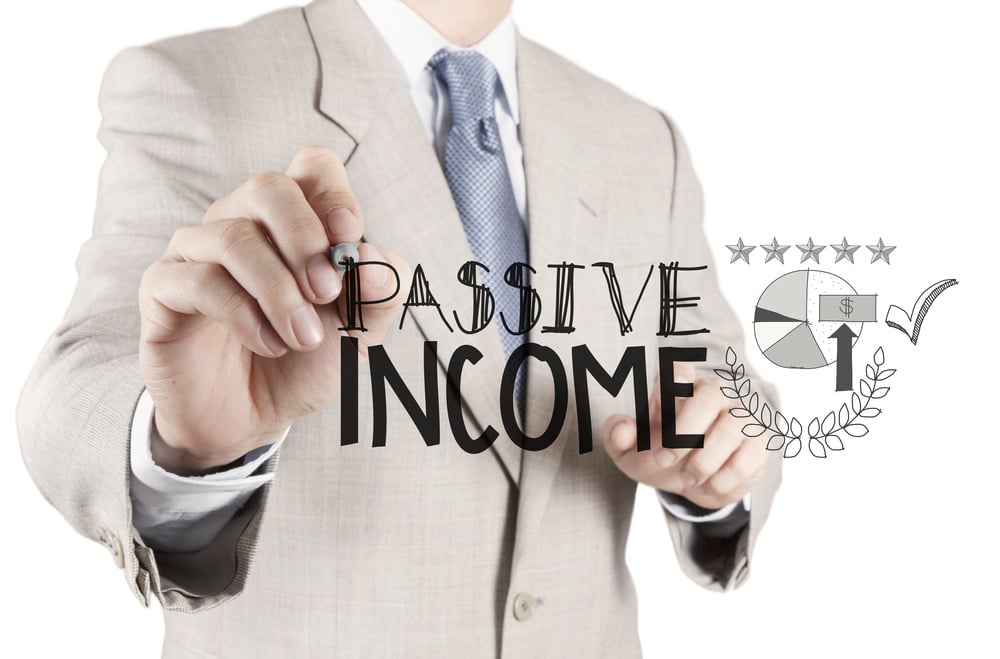Can You Retire with Real Estate? Yes, Here’s How!
Investing in real estate for retirement is one of the savviest moves you can make for your financial future. Keep reading to learn about the benefits...
7 min read
Rent To Retirement : Apr 7, 2025 12:00:00 AM

Whether you’re looking to retire early from your W2 job or build a large nest egg for later in life, several investments can provide the passive income you need for retirement. In this guide, we’ll share the five best retirement investments, the top three benefits to look for in an investment, and how you can use retirement accounts to invest in real estate!
Summary:
Not every investment is a good investment to hold in retirement. The top retirement investments have three benefits in common:
Passive income is cash flow that is earned with little to no labor or active involvement. Be careful not to get stuck with a retirement investment that drains your time and energy when you should be kicking back and enjoying the fruits of your hard work!
One of your main goals in retirement should be to minimize your taxes so that your portfolio can continue to support your retirement lifestyle. A huge tax bill can quickly eat into your retirement funds and even alter your retirement plans.
Retirement is not the time to be living off high-risk assets like tech stocks or cryptocurrency. The best retirement investments are low-risk and have a proven track record of delivering solid returns to retirees.
If you want to truly retire (and not continue working!), you’ll need a retirement investment that provides passive income. Here are the top five investments to consider:
Turnkey rentals are newly built or renovated properties that you can rent out for a profit. The beauty of these investments is that they are professionally managed for you and often have renters in place. This takes things like dealing with tenants, fielding maintenance requests, handling evictions, and other typical landlord duties off your plate!
Turnkey real estate is one of the best retirement investments, as it offers a wide range of benefits:
Cash Flow: Like regular rental properties, turnkey rentals can provide high real estate cash flow. But because these properties are managed for you, their returns are more passive!
Use our retirement calculator to find out how many properties (and how much cash flow) you need to retire!
Tax Benefits: Turnkey rentals have all of the same tax benefits as regular rentals. These include depreciation, interest write-offs, and the ability to 1031 exchange—a strategy that allows you to defer capital gains tax by selling one property and simultaneously buying one of equal or greater value.
Ability to Leverage: Investing in real estate for retirement allows you to use large amounts of debt to obtain an asset. You can buy a turnkey rental with as little as 5% down with Rent to Retirement’s investor-friendly financing!
Turnkey rentals combine the best of active and passive real estate investing, but there are a couple of drawbacks to consider:
Some Management Needed: Turnkey rentals are more passive than the average rental, but they aren’t completely hands-off. You’ll still need to manage your asset and occasionally check in with your property manager.
Less “Passive” Than Bonds: Some investments, like bonds, are completely hands-off. Turnkey rentals may require your attention from time to time, but you’ll get bigger returns!
Learn real estate investing from the experts with the Rent to Retirement Academy!
Real estate investment trusts are publicly traded companies that own and operate real estate, allowing everyday people to passively invest with relatively low capital. This works much like the stock market—you’ll buy shares, receive dividends, and (hopefully) earn capital gains when you sell your shares!
Because REITs are responsible for buying and managing the asset, their investors enjoy several benefits:
Extremely Passive: Since you don’t own or operate any of the properties, you won’t have to worry about tenants, maintenance, vacancies, or any other issues that come with managing real estate. You simply buy a share, sit back, and collect your dividend!
Easy to Diversify: You can buy shares of multifamily, self-storage, or industrial REITs. This allows you to build a well-rounded portfolio without investing a ton of capital.
While REITs offer some of the most passive returns, you should be aware of a few disadvantages before buying shares:
Subject to Market Fluctuations: Much like the stocks, REITs are affected by market volatility. When interest rates rose, many REITs saw their prices and dividend yields fall.
Unable to Leverage: Unlike turnkey rentals, you can’t buy REITs with 20% down! You’ll need to fund your entire investment upfront.
Dividend Yields Can Change: As market conditions change and stock prices fluctuate, REITs can adjust their dividend yield (up or down).
A real estate syndication is a group of investors who pool their money together to buy a larger property (or portfolio of properties). The syndicator or “operator” typically finds and pitches the deal, manages the property, and distributes monthly or quarterly payments to investors.
Like REITs, syndications provide investors with passive income since the operator manages the property on their behalf. This means you can sit back and enjoy the following benefits:
Tax Benefits: Syndications commonly pass along tax benefits to each investor, such as bonus depreciation and mortgage interest deductions. This allows you to keep more of your real estate income without owning property outright!
Income AND Equity: Many syndication investors are paid in two ways. Primarily, they receive preferred returns (the minimum rate of return before the operator is paid), but they may also receive equity ownership, which allows them to profit when the property appreciates and sells.
Access to Larger Projects: Most people don’t have the money to buy a large development or commercial property. Syndications allow you to invest in these assets by pooling your money with other investors!
Real estate syndications are riskier than many investments. Make sure you’re aware of the potential pitfalls:
Capital Calls: If the investment goes south, syndicators can require investors to contribute a pro-rata amount to keep it afloat. This puts you on the hook for even MORE money, unless you can opt out (usually with penalties).
Risky Operators: Your investment largely depends on the syndicator’s ability to generate a return. Due to an influx of inexperienced operators, it’s crucial that you properly vet the syndicator’s track record and transparency before partnering with them.
Illiquid: Once you invest in a syndication, you can’t access your money until the investment ends. This could take five to 10 years!
Get passive income without the headaches by investing in turnkey real estate!
Real estate note investing is when you purchase an existing mortgage and effectively become the lender to whoever is on the loan. When you purchase a real estate note, you receive full lender rights, which means you can seize the property if the borrower fails to pay.
There are several advantages of purchasing these secured loans (especially at a discount!):
Potential for High(er) Returns: Real estate notes may give you a higher return than bonds or a high-yield savings account, especially in today’s high-interest-rate environment.
Property-Backed: Real estate notes are secured by the property. As the noteholder, this means you have the right to take ownership of the property if the borrower defaults.
Low Cost: Since you don’t own the property yourself, you’re not responsible for paying property taxes, insurance, maintenance and repairs, or any other typical homeownership expenses!
Note investing has a few drawbacks, most of which come into play if the borrower defaults:
Risk of Default: If a borrower defaults, your investment goes from passive to active fast! This means you’ll be responsible for managing and maintaining the property until you’re able to sell it.
Illiquid: It may be challenging to sell a non-performing mortgage note (or the distressed property you inherit), even if you’re willing to get out at a discount.
Learning Curve: Note investing has a significant learning curve, due to the nuances and risks that are involved. Diving in without some education could cost you!
High Upfront Investment: Although non-performing notes are often sold to investors at a discount, you’ll still need a significant amount of money to purchase them. You could easily spend over $100,000 on one investment (upfront!).
Private money lending is the process of loaning money to real estate investors and receiving a larger return. These are typically short-term loans, making them a popular option for house flippers who require quick funding for their rehab projects and want to avoid traditional bank financing.
Private money lending is one of the best ways to make your money work harder for you. Here are a few of the benefits:
High Yields: Lenders often make returns of 10% - 14%. That’s much more than you’ll ever earn by parking your money in a high-yield savings account or certificate of deposit (CD)!
Quick Turnaround: These loans are typically short-term holds, as many flippers may only need the money for six to nine months. This allows you to reinvest the same money over and over!
Flexible Terms: You and the borrower have complete control over the terms of the loan. This means you can save your capital for an arrangement that will give you a worthwhile return.
Private money lending might be a no-brainer investment if you want fast, passive returns. However, there are a few disadvantages to note:
No Tax Benefits: Unfortunately, there are no tax deductions for private money lenders. Your returns will be taxed as ordinary income!
Requires In-Depth Underwriting: To mitigate the risk of lending money to an investor, you must underwrite both them and the property diligently. This could require some experience!
High Upfront Investment: Because investors require large loans to purchase and rehab properties, you’ll need a decent amount of capital to get started—upwards of $50,000.
Yes! Whether your retirement accounts are underperforming or you’re wary of market volatility, you can move your retirement funds from stocks or bonds into passive real estate investments instead.
While you can’t buy real estate with just any retirement account, setting up (or rolling over funds into) a self-directed IRA, solo 401(k), or SEP IRA gives you the option to purchase real estate and other alternative assets. Simply find a custodian that allows you to invest in real estate, set up and fund your account, choose your investment, make your purchase, and submit any required paperwork!
If you want an investment that allows your money to work harder for you in retirement, turnkey rentals are a clear winner. These properties provide investors with immediate cash flow, long-term wealth through equity growth and appreciation, huge tax benefits, and the ability to leverage.
Buy a 5%-down, cash-flowing turnkey rental property that supports you in retirement!
Turnkey rentals are some of the best retirement investments. These properties are professionally managed for you, so you get to enjoy the benefits of active investing—cash flow, appreciation, tax benefits, and the ability to leverage—without all the headaches of being a landlord!
This depends on what “high return” means to you. Investments like U.S. Treasury securities and certificates of deposit (CDs) are “safe” ways to earn passive income, but their returns pale in comparison to turnkey properties, which can provide a 10%+ cash-on-cash return with limited risk.
Turnkey rentals and private money lending are two of the best investments for retirement, as they can deliver returns of 10% or higher. Keep in mind that private money lending requires large amounts of capital, while turnkey rentals allow you to leverage!

Investing in real estate for retirement is one of the savviest moves you can make for your financial future. Keep reading to learn about the benefits...

Would you invest in real estate if you didn’t have to deal with all of the management, maintenance, and headaches of rental property investing?...

What’s the best way to build long-term wealth? If you want to know whether you should save for retirement or invest in real estate, keep reading! In...